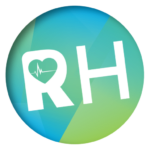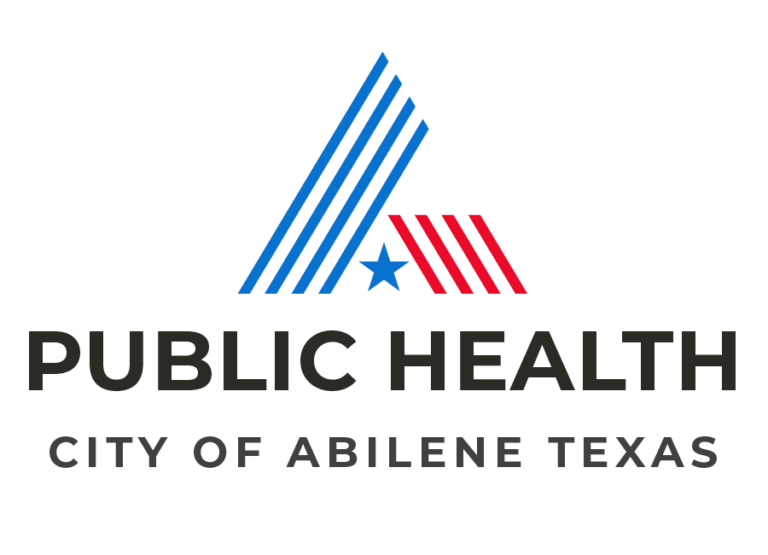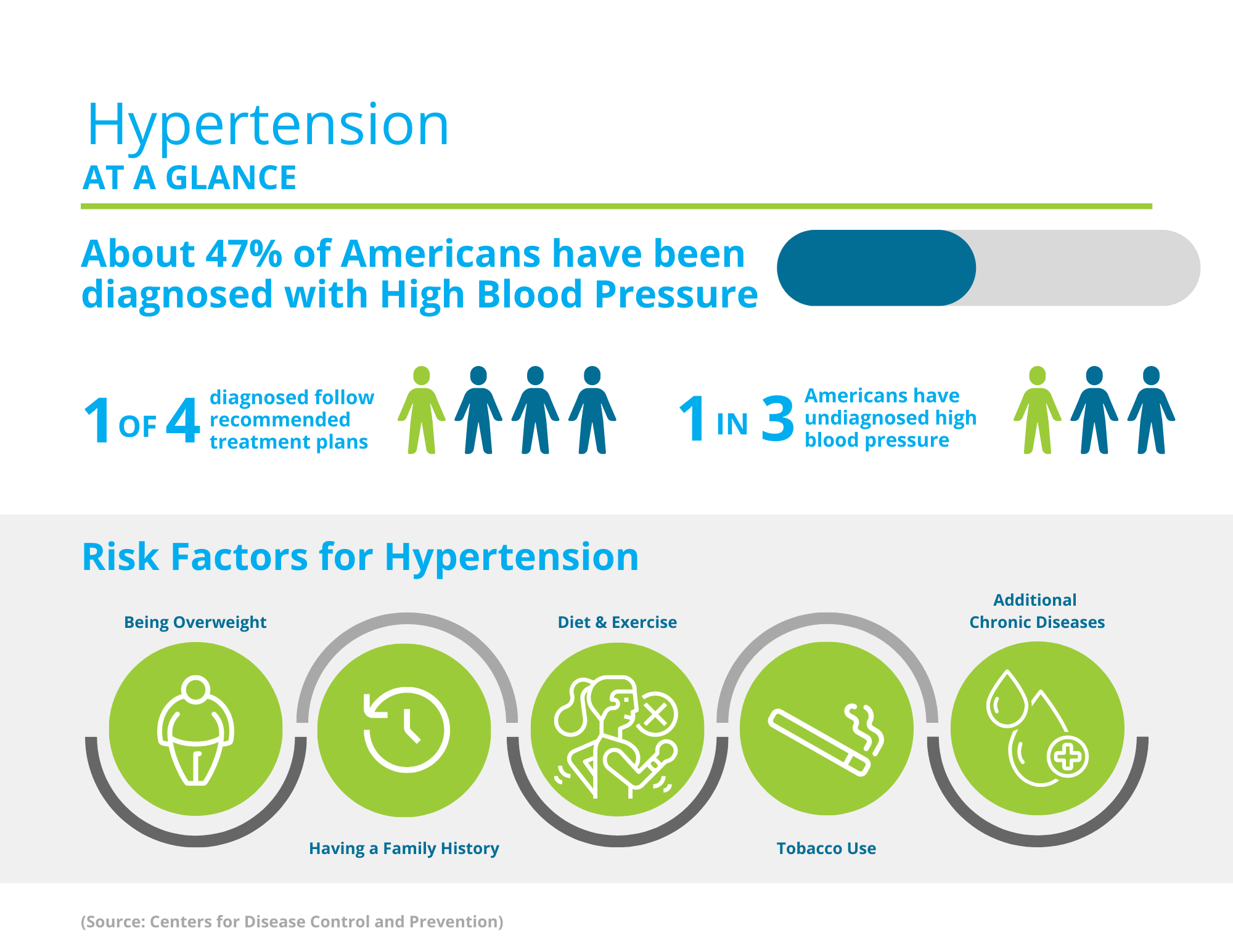
General Hypertension Information
High blood pressure, referred to as hypertension. Blood pressure is determined by how much blood your heart pumps, and your blood vessels. If your arteries are more narrow, and your heart is pumping more blood this can lead to high blood pressure. Blood pressure reading gives two numbers: the top number (systolic) and the bottom number (diastolic). The systolic number measures the pressure in your arteries when your heart beats. The diastolic number measures the pressure in your arteries between beats or your heart.
The following numbers are just considered average, please consult your doctor with any questions or diagnosis. Normal blood pressure is considered less than 120/less than 80. Elevated blood pressure is considered 120-129/less than 80. Stage 1 high blood pressure is considered 130-139/80-89. Stage 2 high blood pressure is considered 140 or higher/90 or higher. Hypertensive crisis (seek immediate medical care) is higher than 180/higher than 120.
How does hypertension occur?
High blood pressure can be caused by family history, past medical history, lack of exercise, age, stress, kidney disease, sleep apnea, excessive alcohol consumption, race, ethnicity, obesity, poor diet, or increased salt in diet. These are risk factors that can lead to high blood pressure. However, some individuals may develop high blood pressure and doctor’s are unable to identify cause or risk.
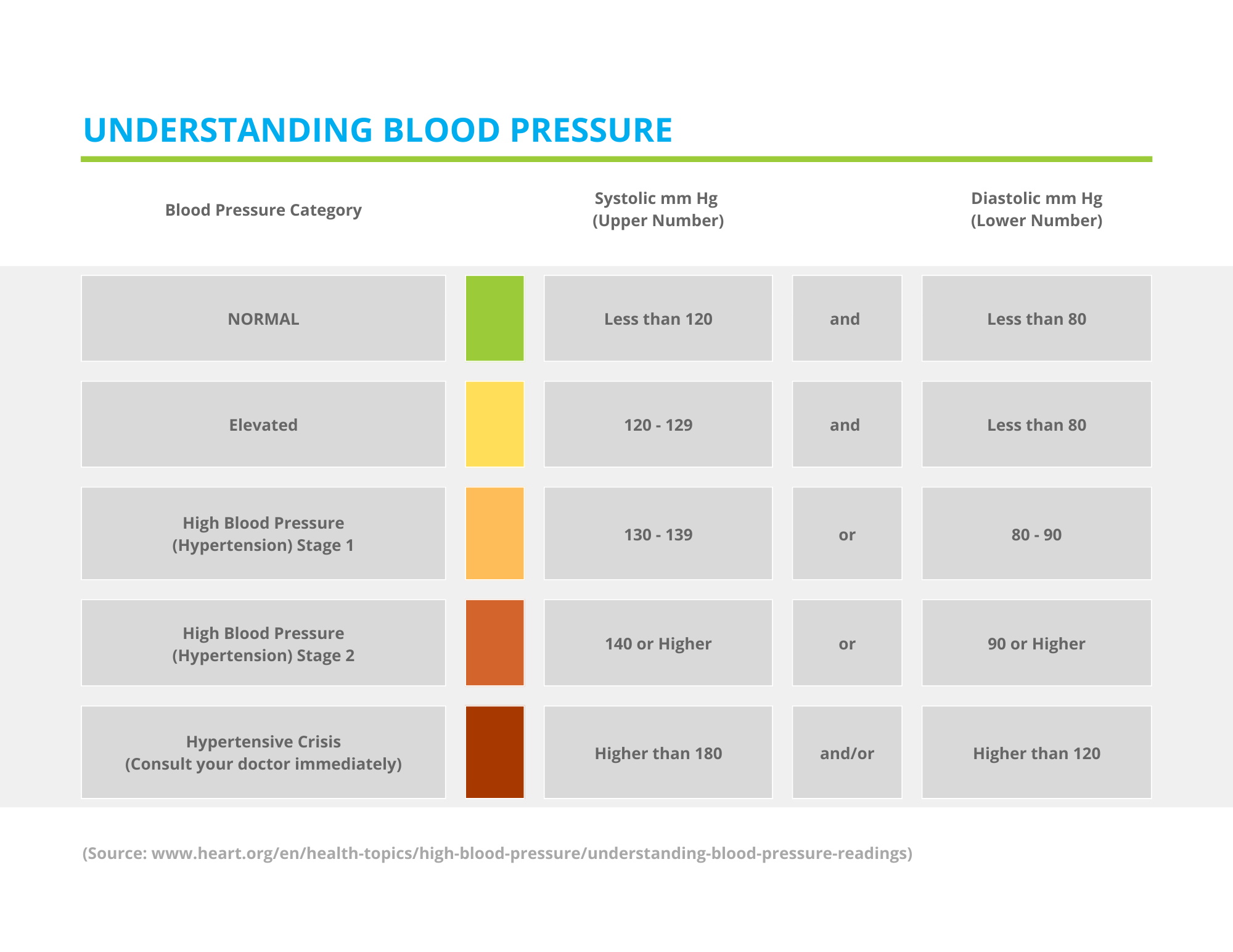
Diagnosis and Treatment?
Diagnostic testing begins at your primary care physician’s office with blood pressure monitoring. In addition, doctors may order blood work, echocardiogram, EKG, or at home blood pressure monitoring. At home blood pressure monitoring can be done via an electric cuff. Follow the doctor’s recommendation and advice on how to use at home blood pressure cuffs. Some common tips are to sit still while taking blood pressure, measure at the same time daily, sit with your back straight against a surface (chair), take multiple readings and record them along with date and time, and don’t take blood pressure measurements over clothes.
The most common treatment method for high blood pressure is medication. There are several different options for medications, and your doctor will select the medication that is best for you. Healthy lifestyle changes, like diet and exercise, may also help lower blood pressure.
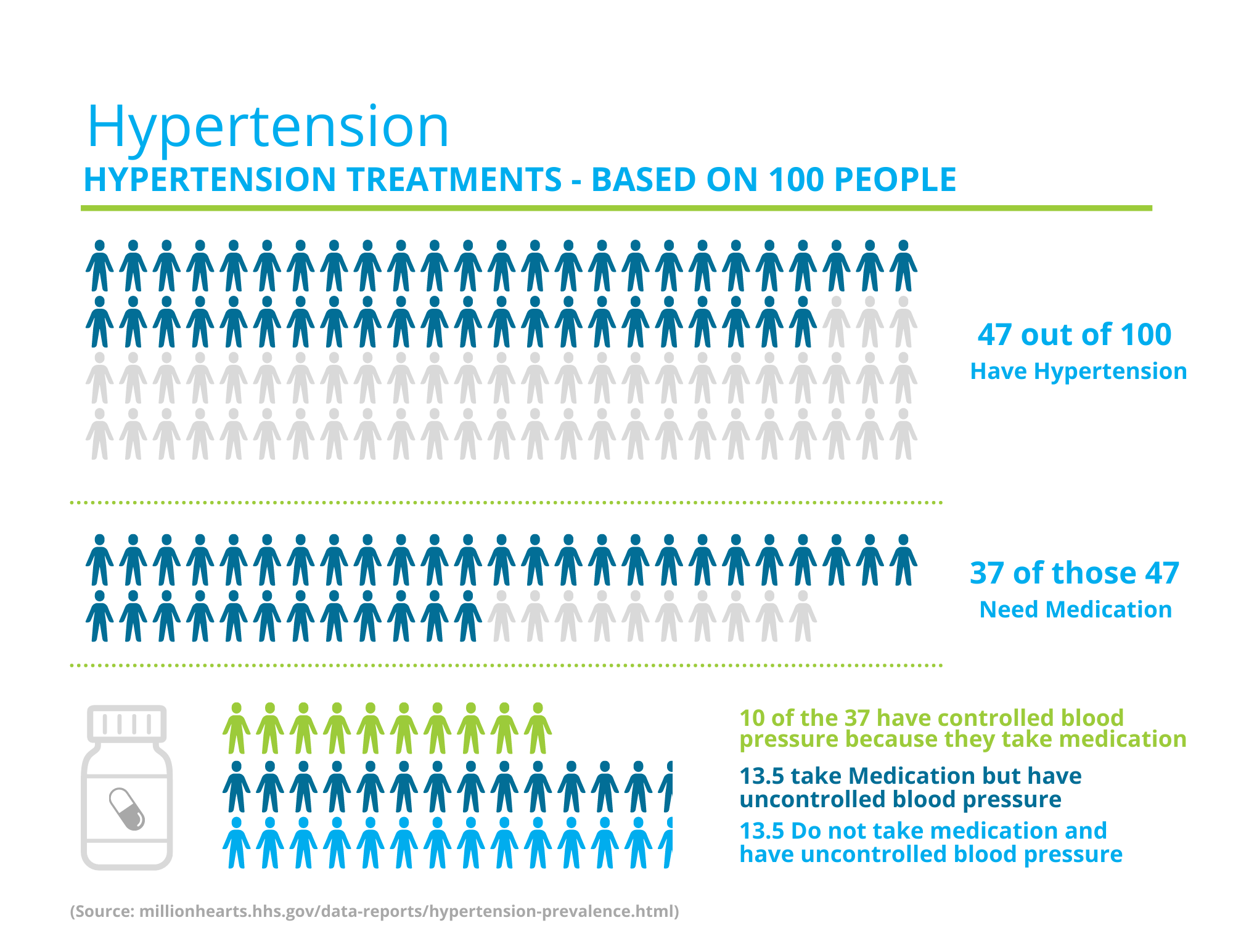
Prevention?
Prevention for high blood pressure will mainly focus on limiting risk factors. Some prevention techniques are to quit smoking, limit alcohol consumption, exercise, maintain a healthy weight, eat a well balanced diet, manage other chronic conditions, and take medications as described.
High blood pressure can lead to serious complications such as a heart attack, stroke, heart failure, vision loss, and additional medical conditions that require attention.
For more information: https://www.heart.org/en/health-topics/high-blood-pressure
Learn more about Cancer’s impact on our community HERE.

